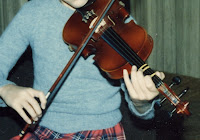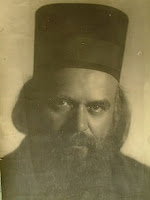I was moved to tears by the experience of attending the symphony yesterday. As I have little musical training beyond being challenged by the Tonette in third grade, I’m not the one to give a knowledgeable critic’s review. Other than one music appreciation course in college, most of my music listening has been with three-quarters of my brain elsewhere.
 Our son’s Japanese violin teacher assured us that even if we dozed during concerts we all would benefit by hearing the music played well, so I have comforted myself with the image of beautiful sounds soaking irresistibly into the consciousness. After my marriage, our house was often full of live music, what with five children and a husband playing guitars, flute, violin and piano. But I was normally in another room stirring the soup or folding laundry.
Our son’s Japanese violin teacher assured us that even if we dozed during concerts we all would benefit by hearing the music played well, so I have comforted myself with the image of beautiful sounds soaking irresistibly into the consciousness. After my marriage, our house was often full of live music, what with five children and a husband playing guitars, flute, violin and piano. But I was normally in another room stirring the soup or folding laundry.
And concerts were typically not in the budget, though I have to admit that many of the children’s recitals filled me with joy at the expertise of the students, especially toward the end of the lineup when those most advanced at their instruments showed us their stuff. The boys were also able to play in beginning or amateur orchestras. It makes me very happy these days even to hear over the radio one of those pieces from the Suzuki violin repertoire, or a Nocturne that a daughter played. I can’t seem to enjoy classical music the first time I hear a piece, but after it has become familiar I love it dearly.
That’s why I cared so much about going to the symphony last weekend, to hear Brahms; in college when I owned only a few LP’s, a thrift-store album of Brahms symphonies was one of them. We’ve never acquired an updated recording, but I was eager to hear a live rendition of his music.
I also wanted to sit there in the concert hall and listen to whatever was on the program, familiar or not, for the greater chance for participation that it affords. Even when the compositions being performed are not to my liking, the visual component helps to keep me on the edge of my seat. Because I’m not much of an auditory learner, if the sensory input is limited to hearing, as in a recording, it’s really hard for me to assess or even pay close attention to the music, and the fact that I’ve never learned to play an instrument is another hole in my readiness.

But with the orchestra arrayed before me I’m greatly helped to appreciate the amazing work that’s being done. It’s all to the glory of God at the very outset, Who formed each individual in the womb with incredible gifts of intelligence and physical coordination. From there every artist has a unique story about how he struggled to bring his fingers and/or lips into submission to the requirements of the instrument and to the demands of the musical score.
Speaking of fingers, the conductor had the longest fingers I’ve ever seen. His whole body was long and thin and so flexibly energetic, he threatened to bounce into the floodlights or melt into the sound waves. The timpanist looked like my high school chemistry teacher — well, who knows, perhaps he is a high school teacher. One balding cellist with a bushy ponytail stood out because he jerked his head so emphatically with his bowing, and the flutist who played a solo part exquisitely — thank God for her!
The two Brahms pieces were the 4th Symphony, and the Violin Concerto Opus 77. Though she is famous in the classical music world, Mr. Glad and I hadn’t heard of the violin soloist Elina Vähälä, so we read a little about her online beforehand and even listened to a clip of her playing. Of course, the live performance was thrilling. Certainly I’ve never heard anything more sublime than the sounds from that “Antonio Stradivari violin, built in 1678 and generously loaned by the Finnish Cultural Foundation,” which she played lovingly. She’s a beautiful woman and we were privileged to be there with her in her radiance.
After her performance, Ms. Vähälä came up into the balcony not far from where we sat, to join the audience in enjoyment of the 4th Symphony. I so admire all those regular members of the orchestra and the way they submit their art and skill to the group, and to the composer. They gather in ranks and in humble monochrome to work their magic, making the music emerge and shine in all its brightness, lifting our spirits. Even Brahms and his talent, the story of his life and how God worked in it to bless the world, are in the background.
It all makes me think of lying dreamily in a meadow in springtime. Your mind is filled with contentment and excitement all at once, for the multitude of pleasant sounds and feelings all mixed up and coming in. Gradually and intermittently, you notice individual players, like a particular bird’s song or the scent of the grasses. The sky is blue overhead; clouds with interesting shapes pass by. And yes, you might even sleep. But in the end, you are a richer person for having been there. And you don’t even know how it happened.





 Our son’s Japanese violin teacher assured us that even if we dozed during concerts we all would benefit by hearing the music played well, so I have comforted myself with the image of beautiful sounds soaking irresistibly into the consciousness. After my marriage, our house was often full of live music, what with five children and a husband playing guitars, flute, violin and piano. But I was normally in another room stirring the soup or folding laundry.
Our son’s Japanese violin teacher assured us that even if we dozed during concerts we all would benefit by hearing the music played well, so I have comforted myself with the image of beautiful sounds soaking irresistibly into the consciousness. After my marriage, our house was often full of live music, what with five children and a husband playing guitars, flute, violin and piano. But I was normally in another room stirring the soup or folding laundry.